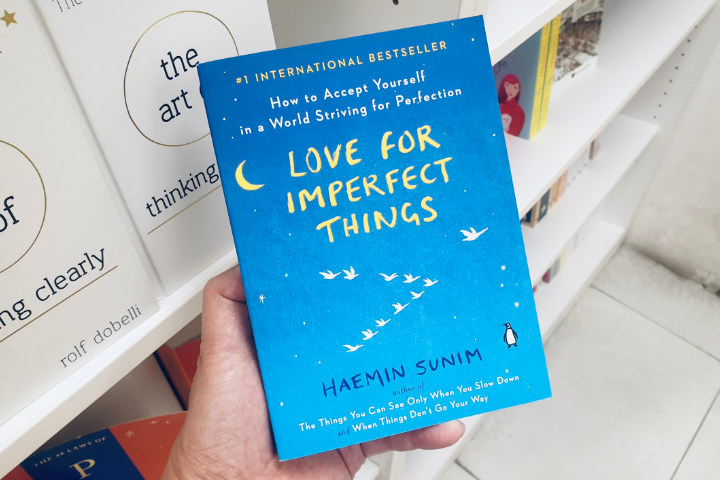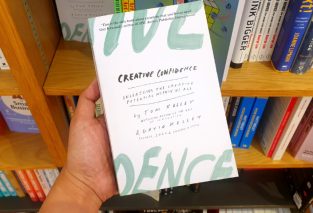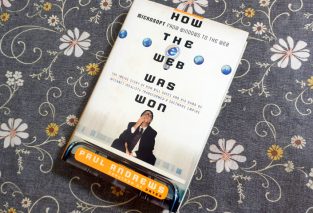In a world that often demands perfection, Haemin Sunim’s “Love for Imperfect Things” is a gentle reminder that the beauty of life lies in its imperfections.
As I walked into a random bookstore, the cover of this book caught my attention from afar. And I was mysteriously drawn to walk over to reach out for it.
Diving into this heartwarming book written by a zen Buddhist monk, you’ll find that it contains a hearty collection of wisdom and reflections that offer comfort and solace in our everyday lives. It gently reminds us that there’s beauty in our flaws. Nudging us along to appreciate the imperfections in ourselves and others.

Key lessons in the book include.
- The Power of Self-Compassion. One of the most striking themes is the emphasis on self-compassion. What I find very relatable with is the argument that in our pursuit of excellence, we often become our harshest critics, punishing ourselves for not measuring up to unrealistic standards. The author suggests that the antidote to this self-imposed suffering is kindness towards oneself. He gently encourages readers to embrace their vulnerabilities and view them as integral parts of their journey. Why choose to be the bad cop to yourself when you can be the good cop.
- Embracing Imperfection in Relationships. Another poignant aspect is the exploration of relationships. The unique view posits that true connection arises when we accept others as they are. Imperfections and all. In an age where social media often paints a glossy, idealized picture of others’ lives, this is a breath of fresh air. Drop the preconceived notions of perfection and approach our loved ones with empathy and understanding. By doing so, we create a space where authentic relationships can flourish.
- Finding Balance in Life. The book also delves into the pursuit of balance in life, an elusive goal for many. There are practical advice on how to navigate the chaos of modern living without losing sight of what truly matters. By prioritizing rest and reflection, we can cultivate a sense of peace amidst the tumult. The reflections on balance remind us that life is not about achieving a flawless existence but about finding harmony amid the imperfections.
You might see the content in this book resembling a mocktail blend of spirituality and practical advice to guide you towards self-acceptance.
While the anecdotes and insights highlight how imperfections can lead to growth and understanding.
One notable example is when Sunim discusses the idea of self-compassion.
He encourages readers to treat themselves with the same kindness they would offer a dear friend. This perspective shifts the focus from relentless self-criticism to a more nurturing outlook.
It’s a real page-turner when you realize that your flaws are not foes but more like friends that help you grow.
If you are honest about your own struggles, it can lead to a profound connection with another person.
The lesson here is that when we allow ourselves to be open, we create space for authentic relationships to flourish. Vulnerability, is not a sign of weakness but a testament to our courage.
Simplify our lives by focusing on what truly matters, whether it’s nurturing relationships, finding joy in small moments, or letting go of unnecessary burdens.
There are parallels between our cluttered minds and overstuffed closets. Decluttering both can lead to greater clarity and tranquility.
Sometimes life’s greatest lessons are as simple as learning to let go. Because when you finally drop the baggage, you can catch the flight to happiness.
Shortcoming
There is a tendency for it to sometimes offer advice that feels overly simplistic or generalized. And this might not resonate deeply with all readers.
While the book aims to provide comfort and wisdom, some might find that its insights lack the depth or specificity needed to address complex personal struggles.
This broad approach can occasionally leave readers seeking more nuanced guidance feeling somewhat underserved as the solutions presented may not fully capture the intricacies of individual experiences.
More detailed examples or specific situations could enhance its applicability and provide a richer, more relatable experience for a diverse audience.
Biggest Takeaway
If i can wrap the key message that the author was trying to convey when writing this book, I would say that it is the art of self-care.
Sunim guides readers to prioritize their well-being without guilt or hesitation. He dispels myths around self-care being selfish by illustrating how taking care of yourself can lead to better relationships with others.
The practical tips range from meditation practices to simply taking time for yourself, all aimed at fostering inner peace. When you care for yourself, you become better equipped to care for others.
A sentiment that resonates deeply in today’s fast-paced world.
Perfection is not the goal. Presence is.
And in being present, we find love and acceptance. Not just for others, but most importantly, for ourselves.
If you ever feel like you’re falling apart, just remember that you’re simply making room for all the good pieces to fall into place.



